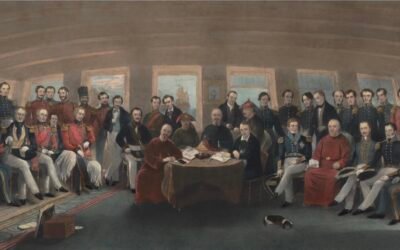Truth and justice are fundamental pillars of any just society. When gross human rights violations occur, the right to the truth becomes a crucial element in restoring justice and upholding the dignity of victims.
by Davide Suleyman Amore*
*A paper presented at the webinar “Spreading the Truth About the Tai Ji Men Case,” co-organized by CESNUR and Human Rights Without Frontiers on March 24, 2025, United Nations International Day for the Right to the Truth Concerning Gross Human Rights Violations and the Dignity of the Victims.
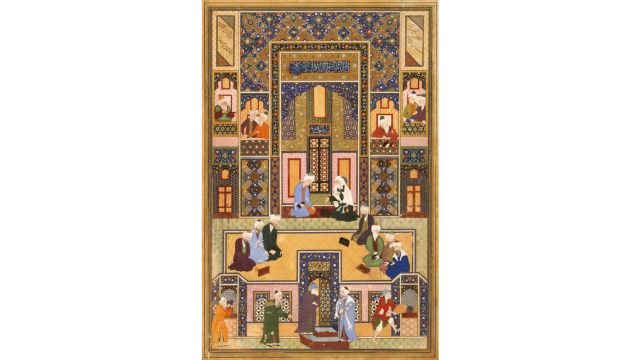
In Islam, truth (ḥaqq) is not merely a moral virtue; it is a divine command deeply embedded in the ethical and legal foundations of Islamic teachings. The Qur’an repeatedly emphasizes the duty to uphold truth and justice, even when it is inconvenient or goes against one’s own interests. One of the most powerful verses (Sūrah an-Nisa’ 4:135) in this regard states:
﴿ يَٰٓأَيُّهَا اَ۬لذِينَ ءَامَنُواْ كُونُواْ قَوَّٰمِينَ بِالْقِسْطِ شُهَدَآءَ لِلهِ وَلَوْ عَلَيٰٓ أَنفُسِكُمُۥٓ أَوِ اِ۬لْوَٰلِدَيْنِ وَالَاقْرَبِينَۖ إِنْ يَّكُنْ غَنِيّاً اَوْ فَقِيراٗ فَاللَّهُ أَوْل۪يٰ بِهِمَا فَلَا تَتَّبِعُواْ اُ۬لْهَو۪يٰٓ أَن تَعْدِلُواْۖ وَإِن تَلْوُۥٓاْ أَوْ تُعْرِضُواْ فَإِنَّ اَ۬للَّهَ كَانَ بِمَا تَعْمَلُونَ خَبِيراٗۖ ﴾
“You who believe! be upholders of justice, bearing witness for Allah alone, even against yourselves or your parents and relatives. Whether they are rich or poor, Allāh is well able to look after them. Do not follow your own desires and deviate from the truth. If you twist or turn away, Allāh is aware of what you do.”
This verse underscores the Islamic obligation to uphold truth, even in difficult circumstances. The Prophet Muḥammad (ﷺ) also reinforced this principle, teaching that silence in the face of injustice is a betrayal of moral responsibility.
The issue of truth and justice is not only a theoretical concept but a pressing reality in today’s world. Around the globe, countless individuals and communities continue to suffer from the denial of truth regarding historical and ongoing injustices. A contemporary example is the Tai Ji Men case, which illustrates how legal and governmental injustices can persist for decades, causing prolonged suffering and violating fundamental human rights. The struggle of Tai Ji Men for justice reflects a broader global issue: when authorities manipulate or suppress the truth, the dignity of victims is eroded, and society as a whole suffers.
This presentation will explore how Islamic teachings uphold the right to the truth, emphasizing the moral and legal imperatives of justice, accountability, and the dignity of victims. By examining Qur’anic principles, prophetic traditions, and historical precedents, we will highlight how Islam provides a framework for ensuring that truth is not only spoken but actively defended. Ultimately, the pursuit of truth is not just a human right—it is a sacred duty.
Truth (ḥaqq) and justice (ʿadl) are among the most emphasized principles in Islam, forming the foundation of a just and moral society. Unlike mere philosophical ideals, these principles are presented in the Qur’ān as divine obligations, inseparable from faith and ethical governance. The Islamic worldview asserts that truth is not relative or negotiable—it is a sacred trust that must be upheld in personal conduct, judicial matters, and governance.
The Qur’ān describes truth (ḥaqq) as an attribute of Allāh Himself. In Sūrah Yūnus (10:32), it states:
﴾ فَذَٰلِكُمُ اُ۬للَّهُ رَبُّكُمُ اُ۬لْحَقُّۖ فَمَاذَا بَعْدَ اَ۬لْحَقِّ إِلَّا اَ۬لضَّلَٰلُۖ فَأَنّ۪يٰ تُصْرَفُونَۖ ﴿
“That is Allāh, your Lord, the Truth, and what is there after truth except misguidance? So how have you been distracted?”
This verse highlights the fundamental Islamic view that truth stands in direct opposition to falsehood, and that deviating from truth leads to moral and social corruption. Muslims are therefore commanded to seek and uphold truth in all aspects of life.
One of the strongest directives regarding truthfulness is found in Sūrah al-Bāqarah (2:42):
﴾ وَلَا تَلْبِسُواْ اُ۬لْحَقَّ بِالْبَٰطِلِ وَتَكْتُمُواْ اُ۬لْحَقَّ وَأَنتُمْ تَعْلَمُونَ ﴿
“Do not mix up truth with falsehood and knowingly hide the truth.”
This verse not only prohibits lying but also forbids the distortion or suppression of truth—whether for personal gain, political power, or social convenience. This has direct implications for human rights, as justice cannot be served when truth is hidden, manipulated, or ignored.
Moreover, truthfulness (ṣidq) is one of the defining virtues of the Prophet Muḥammad (ﷺ), who was known as Aṣ-Ṣādiq, Al-Amīn (the truthful and trustworthy). His commitment to truth was not just in speech but in action, serving as a model for ethical leadership and moral integrity.
Justice (ʿadl) is an essential pillar of Islamic teachings. The Qur’ān repeatedly commands believers to uphold justice, even when it is difficult or goes against their own interests. One of the most striking verses on this issue is the aforementioned Sūrah an-Nisa’ 4:135, which establishes justice as an obligation that transcends social status, personal relationships, and economic interests. It calls upon believers to bear witness to the truth (shahādah), reinforcing the idea that truth and justice are not passive concepts but active duties.
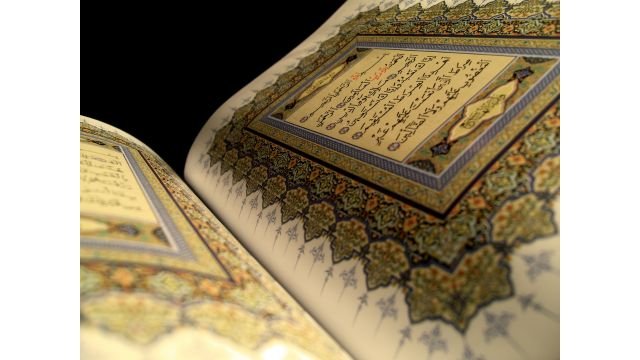
Additionally, the Qur’ān (Sūrah an-Nahl 16:90) warns against oppression (ẓulm) and injustice, stating that they lead to divine punishment:
﴾ إِنَّ اَ۬للَّهَ يَامُرُ بِالْعَدْلِ وَالِاحْسَٰنِ وَإِيتَآءِےْ ذِے اِ۬لْقُرْب۪يٰۖ وَيَنْه۪يٰ عَنِ اِ۬لْفَحْشَآءِ وَالْمُنكَرِ وَالْبَغْيِۖ يَعِظُكُمْ لَعَلَّكُمْ تَذَّكَّرُونَۖ ﴿
“Allāh commands justice and doing good and giving to relatives. And He forbids indecency and doing wrong and tyranny. He warns you so that hopefully you will pay heed.”
This command illustrates that justice is not limited to legal settings but must extend to all aspects of life, including governance, social interactions, and economic transactions. The Prophet (ﷺ) further emphasized this in his famous hadith (Aṭ-Ṭabarānī’s al-Mu’jam al-Awsaṭ 6, 139):
عَنِ ابْنِ عُمَرَ أَنَّ النَّبِيَّ صَلَّى اللَّهُ عَلَيْهِ وَسَلَّمَ قَالَ أَحَبُّ النَّاسِ إِلَى اللَّهِ أَنْفَعُهُمْ لِلنَّاسِ وَأَحَبُّ الأَعْمَالِ إِلَى اللَّهِ سُرُورٌ تُدْخِلُهُ عَلَى مُسْلِمٍ أَوْ تَكْشِفُ عَنْهُ كُرْبَةً أَوْ تَقْضِي عَنْهُ دِينًا أَوْ تَطْرُدُ عَنْهُ جُوعًا وَلَأَنْ أَمْشِيَ مَعَ أَخٍ لِي فِي حَاجَةٍ أَحَبُّ إِلَيَّ مِنْ أَنْ أَعْتَكِفَ فِي هَذَا الْمَسْجِدِ يَعْنِي مَسْجِدَ الْمَدِينَةِ شَهْرًا وَمَنْ كَفَّ غَضَبَهُ سَتَرَ اللَّهُ عَوْرَتَهُ وَمَنْ كَظَمَ غَيْظَهُ وَلَوْ شَاءَ أَنْ يُمْضِيَهُ أَمْضَاهُ مَلأَ اللَّهُ عَزَّ وَجَلَّ قَلْبَهُ أَمْنًا يَوْمَ الْقِيَامَةِ وَمَنْ مَشَى مَعَ أَخِيهِ فِي حَاجَةٍ حَتَّى أَثْبَتَهَا لَهُ أَثْبَتَ اللَّهُ عَزَّ وَجَلَّ قَدَمَهُ عَلَى الصِّرَاطِ يَوْمَ تَزِلُّ فِيهِ الأَقْدَامُ
Ibn ‘Umar reported: “The Prophet, peace and blessings be upon him, said, ‘The most beloved of people to Allah is the one who brings the most benefit to others. The most beloved deed to Allāh is to make a Muslim happy, or to relieve him from hardship, or to pay off his debt, or to expel his hunger. That I walk with a brother regarding a need is more beloved to me than that I seclude myself in this mosque in Medina for a month. Whoever swallows his anger, then Allāh will conceal his faults. Whoever suppresses his rage, even though he could fulfill his anger if he wished, then Allāh will secure his heart on the Day of Resurrection. Whoever walks with his brother regarding a need until he secures it for him, then Allāh Almighty will make his footing firm across the bridge on the day when the footings are shaken.’”
This prophetic teaching highlights that justice is not merely about punishment for wrongdoers but also about restoring dignity and alleviating suffering. It aligns with modern human rights principles, which emphasize not only accountability but also reparative justice for victims.
Islamic history provides numerous examples of rulers and judges who upheld truth and justice, even when it meant ruling against their own interests. One of the most famous cases is that of Caliph ‘Umar ibn al-Khaṭṭāb, who insisted that rulers must be held accountable like any other citizen. In one instance, when a woman challenged him in public regarding a ruling on dowries, he immediately corrected his stance, acknowledging the truth she had presented. His famous statement—”The woman is right, and ‘Umar is wrong”—illustrates the Islamic principle that truth prevails over personal ego or political authority.

This historical precedent serves as a reminder that justice is only possible when truth is upheld without fear or bias. In today’s world, where misinformation and political manipulation often obscure the truth, the Islamic emphasis on truth and justice remains as relevant as ever.
The right to the truth is not only a legal principle recognized by international human rights law but also a fundamental moral and ethical obligation in Islam. In cases of gross human rights violations—such as unlawful killings, enforced disappearances, torture, and systematic persecution—the pursuit of truth is essential for justice, accountability, and the restoration of human dignity. Islam firmly upholds the necessity of truth-telling, bearing witness against oppression, and ensuring that victims are not forgotten or silenced.
Islamic teachings emphasize that silence in the face of oppression is itself a form of injustice. The Qur’ān (Sūrah al-Mā’idah 5:8) commands believers to stand firmly for truth and justice, even against powerful authorities:
﴿ يَٰٓأَيُّهَا اَ۬لذِينَ ءَامَنُواْ كُونُواْ قَوَّٰمِينَ لِلهِ شُهَدَآءَ بِالْقِسْطِۖ وَلَا يَجْرِمَنَّكُمْ شَنَـَٔانُ قَوْمٍ عَلَيٰٓ أَلَّا تَعْدِلُواْۖ اُ۪عْدِلُواْ هُوَ أَقْرَبُ لِلتَّقْو۪يٰۖ وَاتَّقُواْ اُ۬للَّهَۖ إِنَّ اَ۬للَّهَ خَبِيرُۢ بِمَا تَعْمَلُونَۖ ﴾
“You who believe! show integrity for the sake of Allāh, bearing witness with justice. Do not let hatred for a people incite you into not being just. Be just. That is closer to taqwah (piety). Have taqwah of Allah. Allāh is aware of what you do.”
This verse highlights that justice must be impartial and that truth must be upheld even when it is difficult or unpopular. It directly relates to the right of victims to have their suffering acknowledged and for wrongdoers to be held accountable.
The duty to bear witness (shahādah) is another crucial element in Islamic justice. The Qur’an (Sūrah al-Bāqarah 2:283) warns against distorting the truth or concealing evidence:
﴿ وَإِن كُنتُمْ عَلَيٰ سَفَرٖ وَلَمْ تَجِدُواْ كَاتِباٗ فَرِهَٰنٞ مَّقْبُوضَةٞۖ فَإِنَ اَمِنَ بَعْضُكُم بَعْضاٗ فَلْيُوَ۬دِّ اِ۬لذِے اِ۟وتُمِنَ أَمَٰنَتَهُۥۖ وَلْيَتَّقِ اِ۬للَّهَ رَبَّهُۥۖ وَلَا تَكْتُمُواْ اُ۬لشَّهَٰدَةَۖ وَمَنْ يَّكْتُمْهَا فَإِنَّهُۥٓ ءَاثِمٞ قَلْبُهُۥۖ وَاللَّهُ بِمَا تَعْمَلُونَ عَلِيمٞۖ ﴾
“If you are on a journey and cannot find a writer, something can be left as a security. If you leave things on trust with one another the one who is trusted must deliver up his trust and have taqwa of Allah his Lord. Do not conceal testimony. If someone does conceal it, his heart commits a crime. Allah knows what you do.”
This command reinforces the idea that speaking the truth is not just a right but an obligation upon individuals and society. In the context of human rights violations, it mandates that injustices must not be covered up or erased from history.
Muḥammad (ﷺ) also condemned the concealment of truth, stating (Sunan Abi Dawud 39, 54):
حَدَّثَنَا مُحَمَّدُ بْنُ عَبَادَةَ الْوَاسِطِيُّ، حَدَّثَنَا يَزِيدُ، – يَعْنِي ابْنَ هَارُونَ – أَخْبَرَنَا إِسْرَائِيلُ، حَدَّثَنَا مُحَمَّدُ بْنُ جُحَادَةَ، عَنْ عَطِيَّةَ الْعَوْفِيِّ، عَنْ أَبِي سَعِيدٍ الْخُدْرِيِّ، قَالَ قَالَ رَسُولُ اللَّهِ صلى الله عليه وسلم ” أَفْضَلُ الْجِهَادِ كَلِمَةُ عَدْلٍ عِنْدَ سُلْطَانٍ جَائِرٍ ” . أَوْ ” أَمِيرٍ جَائِرٍ ” .
“Narrated Abū Sa‘īd al-Khudrī: The Prophet (ﷺ) said: ‘The best struggle (jihād) in the path of Allah is (to speak) a word of justice to an oppressive ruler.’
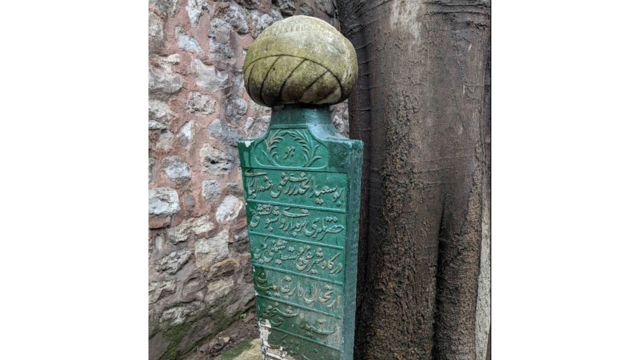
This hadith underscores the moral courage required to expose oppression. It aligns with the principles of transitional justice, where societies must confront past atrocities rather than ignore or whitewash them.
Human dignity (karamah) is central to Islamic teachings. The Qur’ān (Surah al-Isra’ 17:70) affirms that all human beings are inherently dignified:
﴿ وَلَقَدْ كَرَّمْنَا بَنِےٓ ءَادَمَ وَحَمَلْنَٰهُمْ فِے اِ۬لْبَرِّ وَالْبَحْرِ وَرَزَقْنَٰهُم مِّنَ اَ۬لطَّيِّبَٰتِ وَفَضَّلْنَٰهُمْ عَلَيٰ كَثِيرٖ مِّمَّنْ خَلَقْنَا تَفْضِيلاٗۖ ﴾
“We have honored the sons of Adam and conveyed them on land and sea and provided them with good things and favored them greatly over many We have created.”
When human rights violations occur, this dignity is severely compromised. The right to the truth serves as a means of restoring that dignity by acknowledging the suffering of victims, ensuring justice for them, and preventing future abuses.
In Islam, restoring dignity is not just a symbolic act; it requires concrete action. The Prophet Muhammad (peace be upon him) set an example by ensuring that victims of injustice received compensation, public acknowledgment, and legal redress. For example, in cases where individuals were wrongfully punished or persecuted, he would publicly declare their innocence and restore their social status.
The concept of kaffārah (atonement) in Islamic law also supports the idea that justice requires public recognition of wrongdoing and measures to repair the harm done. This aligns with modern human rights frameworks, which advocate for truth commissions, official apologies, and reparations for victims.
The suppression of truth in cases of human rights abuses is not a problem of the past—it continues today in various forms, including political repression, state violence, and systemic discrimination. Around the world, governments and institutions often attempt to silence victims, manipulate historical narratives, or obstruct investigations into serious abuses.
Islamic principles reject such suppression and demand transparency and accountability. The Qur’ān (Surah Hūd 11:113) warns that those who commit oppression (ẓulm) will face consequences:
﴿وَلَا تَرْكَنُوٓاْ إِلَي اَ۬لذِينَ ظَلَمُواْ فَتَمَسَّكُمُ اُ۬لنَّارُۖ وَمَا لَكُم مِّن دُونِ اِ۬للَّهِ مِنَ اَوْلِيَآءَۖ ثُمَّ لَا تُنصَرُونَۖ﴾
“Do not rely on those who do wrong thus causing the Fire to afflict you, for you have no protector besides Allah; then you will not be helped.”
This verse serves as a powerful reminder that individuals and societies must not remain complicit in injustice by accepting falsehoods or covering up human rights violations.
The pursuit of truth and justice is not only an ethical principle in Islam but also a legal imperative embedded in Islamic jurisprudence (fiqh). While contemporary human rights frameworks recognize the right to the truth as essential for justice and reconciliation, Islamic legal traditions have long upheld similar principles, ensuring that truth is preserved, justice is delivered, and the dignity of victims is restored. This section explores how Islamic law aligns with modern human rights principles and provides historical precedents of truth and justice being upheld in Islamic governance.
Modern human rights frameworks, such as the Universal Declaration of Human Rights (UDHR) and various United Nations conventions, recognize the right to truth as a fundamental aspect of justice. In cases of gross human rights violations, truth commissions, judicial inquiries, and reparative justice measures are established to investigate crimes, acknowledge victims, and prevent future abuses.
Islamic legal principles closely align with these objectives. Justice (ʿadl) is one of the foundational values in Sharīʿah, and ensuring that truth prevails is an obligation upon judges (qāḍīs), rulers, and society as a whole. Additionally, both Islamic law and contemporary human rights frameworks emphasize accountability and non-impunity.
Islamic history offers many examples of leaders and judges who upheld the right to the truth in legal and political matters.
- Caliph ‘Umar ibn al-Khaṭṭāb and Public Accountability
a. Caliph ‘Umar was known for his insistence on transparency and truth in governance. He famously declared:
“The best of people is he who loves truth even when it is against him.”
b. When a citizen once questioned the source of his clothing, Umar did not suppress the inquiry but publicly clarified that his son had given him additional fabric. His commitment to truth reflected a key Islamic legal principle: leaders must be held accountable, and truth must never be hidden.
- The Case of the Jewish Man and the Muslim Leader
A Jewish man once brought a legal complaint against Caliph Ali ibn Abi Talib. Instead of favoring the Muslim leader, the judge ruled in favor of the Jewish man due to lack of sufficient evidence from Ali. This case illustrates that Islamic law upholds truth and justice without religious or political bias, aligning with modern principles of due process and equal protection under the law.
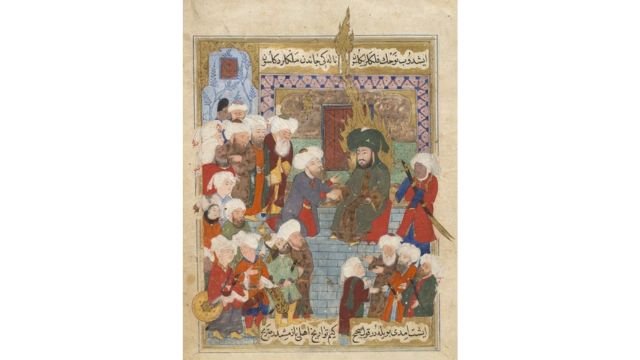
- The Role of the Muhtasib (Ombudsman) in Ensuring Truth
In the Islamic governance system, the Muhtasib acted as a form of public ombudsman responsible for investigating corruption, ensuring market fairness, and holding officials accountable. This mechanism parallels modern human rights commissions, which work to expose abuses and protect citizens from injustice.
These historical cases demonstrate that Islamic law has long established mechanisms to uphold truth, demand justice, and protect the dignity of victims—principles that closely mirror modern human rights frameworks.
In contemporary Muslim societies, the challenge remains to apply these principles effectively in the face of modern injustices. While Islamic legal traditions emphasize the duty to uphold truth, many governments, institutions, and legal systems fall short of this standard. Issues such as political repression, wrongful imprisonments, and the suppression of historical injustices highlight the urgent need for greater alignment between Islamic justice principles and modern human rights advocacy.
Islamic teachings call upon individuals and institutions to:
- Expose and rectify injustices, even when they are committed by those in power.
- Ensure judicial independence so that truth is not suppressed by political interference.
- Recognize the suffering of victims and provide legal and social mechanisms for redress.
- Promote education and awareness about historical and ongoing human rights violations.
The right to the truth in cases of gross human rights violations is a fundamental principle that aligns with both Islamic teachings and modern human rights frameworks. In Islam, truth (ḥaqq) is not merely an abstract concept but a divine mandate, an obligation upon individuals and society to ensure justice (ʿadl) and protect human dignity (karamah). The Qur’an repeatedly commands believers to uphold the truth, bear witness against injustice, and ensure that oppression (ẓulm) is neither tolerated nor concealed.
History demonstrates that Islamic governance and jurisprudence have consistently upheld the right to the truth. From the Caliphs’ commitment to public accountability to the role of the Muhtasib in exposing corruption, Islamic traditions offer valuable precedents for ensuring justice and transparency. These principles strongly resonate with contemporary mechanisms such as truth commissions, reparative justice, and judicial inquiries that seek to acknowledge victims’ suffering and hold perpetrators accountable.
However, the real challenge today lies in implementation. Many contemporary societies, including Muslim-majority nations, struggle to uphold these principles amid political repression, legal manipulation, and systemic injustices. The suppression of truth not only denies justice to victims but also erodes societal trust, paving the way for continued cycles of oppression. Islamic ethics demand that truth must not be compromised—whether in the face of political power, social pressure, or historical revisionism.
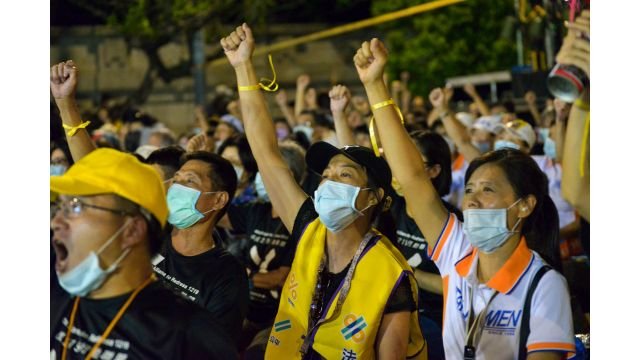
A notable modern example of truth suppression and the struggle for justice is the Tai Ji Men case, where wrongful legal actions and governmental abuse have persisted for decades. The case serves as a reminder that truth and justice must remain central to any legal and moral system. The Islamic commitment to truth-telling and justice supports the right of victims—whether in historical cases or contemporary legal struggles—to see their suffering acknowledged and rectified.
The right to the truth is not merely a legal or political issue—it is a moral, ethical, and spiritual obligation. Whether in historical injustices, contemporary human rights abuses, or cases like Tai Ji Men, the suppression of truth only perpetuates suffering. Islam demands that we stand against falsehood and oppression, ensuring that justice prevails for all.
Let us remember that truth is the path to justice, and justice is the foundation of peace. As individuals and societies, we must commit to upholding the dignity of all victims, holding those in power accountable, and ensuring that the pursuit of justice remains unwavering.



